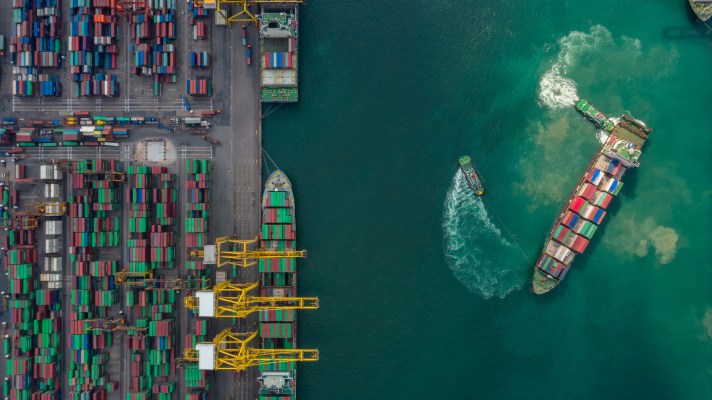“Investors are pouring money into Latin America’s logistics and shipping businesses,” our former colleague Jon Shieber wrote in 2019. But a pandemic later, amid unrest over gasoline prices across the globe, it’s time for a revisit.
Nowports (YC W19) is a good starting point for comparison. In February 2019, the Mexican startup was just graduating from Y Combinator, and in Shieber’s words, “sett[ing] itself up to be the Flexport of Latin America.” Fast-forward to today, and Nowports has raised $92.6 million in funding, including a $60 million Series B round led by Tiger.
Examples like this abound as investors have shown bullishness for freight forwarding all over the world. The pandemic played a role in boosting logistics startups, shining a light on how essential supply chains are. But venture capital keeps on flowing even as COVID-19 wanes, recent news shows.
Just this month, TechCrunch reported on three fundraising events in the freight-forwarding world. Seattle-based Convoy is valued at up to $3.8 billion following a $260 million Series E round. Nigeria’s OnePort landed a $5 million investment that will help it expand to three major African hubs by the end of the year. And in Latin America, DeltaX has its eyes set on the Andean region and $1 million in the bank.
Digitizing freight forwarding is a global challenge because the sector still lacks transparency and efficiency. Latin American startups have a steeper hill to climb, but this also drives them to innovate and help each other in interesting ways.
Much more than copycats
In Latin America, the problem isn’t just that freight forwarding is still very much analog — it is also suboptimized. In the region, “trucking demand outpaces capacity, yet 40% of the time trucks roll empty,” according to Mexican startup BeGo (YC W20).
According to Jonathan Lewy, whose fund Investo backed BeGo and Nowports, the two startups represent the sector’s main models: marketplaces and freight forwarders. Other examples would be Brazil’s CargoX on the marketplace side and Nuvocargo on the freight-forwarding side.
However, business models in Latin America are often blended, and Nuvocargo is a good example of this.
“It offers an all-in-one service that rolls freight forwarding, customs brokerage, cargo insurance and even trade financing into one UI-friendly software and app,” TechCrunch’s Mary Ann Azevedo wrote last December.
Nuvocargo’s fintech element isn’t new, and explains why its 2021 Series A round was led by fintech-focused fund QED Investors. But the startup turned it up a notch last December: Alongside a $20.5 million round led by Tiger, it unveiled QuickPay, a cash advance service for truck drivers using its marketplace.
One of the reasons why Latin American freight startups are embedding fintech into their product is that it can improve the quality of life of truck drivers who are often unbanked, DeltaX CEO Luis Fernando Ortiz told TechCrunch.
Truck drivers aside, fintech products tied to the supply chain can have other targets. As TechCrunch reported, Mundi is a startup providing a financial platform for Mexican SMBs doing cross-border trade.
Nuvocargo is also looking into additional financial services, its CEO, Deepak Chhugani, said last December. “One of the biggest components of [our] vision is deeply rooted in the movement of money and payments for the international supply chain. Nuvocargo will soon offer products and services that help truckers, SMBs and businesses across countries with multiple pain points that go beyond the actual movement of goods.”
Global supporters
As you’ve no doubt observed by now, foreign investors have taken notice of Latin America’s market opportunity, with Nuvocargo and Nowports both backed by Tiger.
Meanwhile, CargoX parent company Frete.com is backed by Tencent and SoftBank, which led its $200 million Series F round. On a side note, Softbank Latin America Fund also handed out $200 million to Loadsmart, which is based in the U.S. but currently hiring in Brazil, the native country of its founders.
Flexport is also a recurring name on Latin American cap tables. The American player backed BeGo and Nuvocargo through its corporate venture capital fund, and there’s more. Last November, the U.S. freight forwarder partnered with On Deck to launch a vertical accelerator, ODX Flexport, and at least two startups in the first batch are focused on Latin America: Brazil’s Parnity and Mexico’s WeShip.
Flexport investing in Latin American peers isn’t an isolated case. Other companies in the market are also cutting checks. DeltaX’s seed round, for instance, saw participation from Chhugani and Nowports CEO Alfonso de los Rios.
Are these investments the first step before M&As? Maybe. After all, Latin American startups in the space tend to be complementary in their geographic focus and expertise. But it seems early for consolidation, at least when it comes to seeing the region’s largest players getting acquired, Lewy said. For now, we can only expect more startups to join the unicorn queue — unless the IPO window reopens sometime soon.
